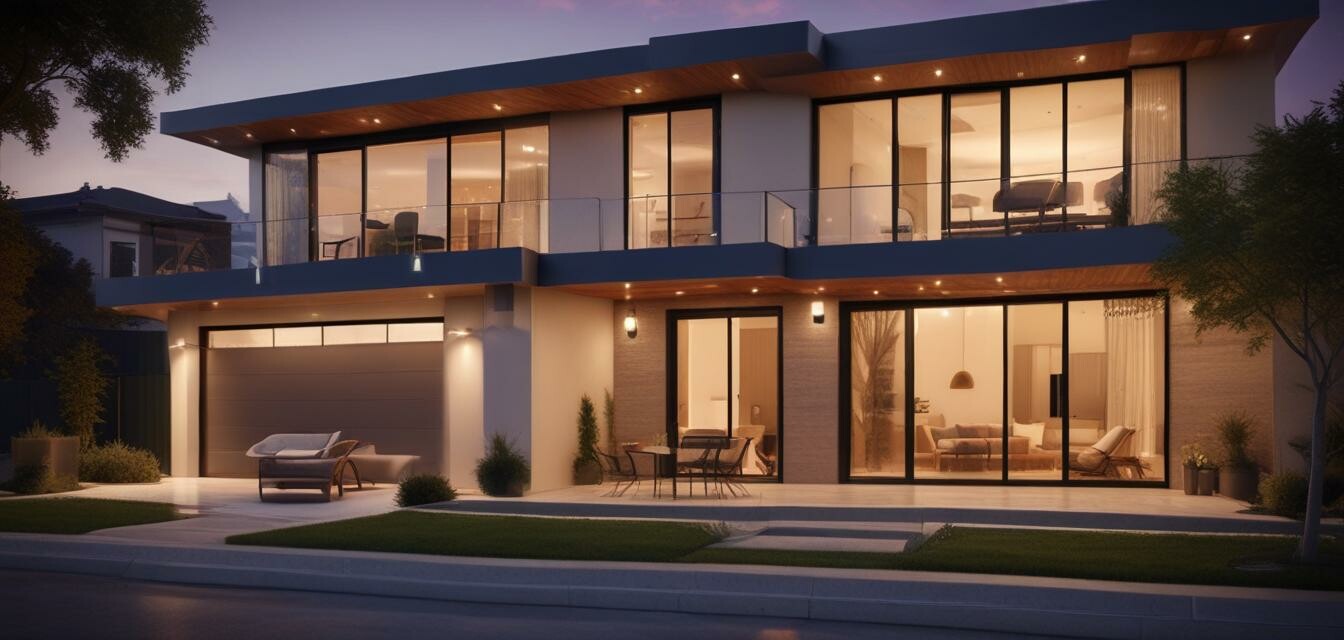
The influence of smart home tech on real estate value
Key takeaways
- Smart home technologies enhance property security and convenience.
- Properties equipped with smart systems tend to have higher resale values.
- The growing demand for smart homes is reshaping real estate trends.
- Investing in security technologies can benefit both sellers and buyers.
The real estate market is rapidly evolving, and technology is playing a crucial role in shaping its future. Among these technologies, smart home security systems are becoming vital, significantly affecting property values. Homebuyers are increasingly seeking homes equipped with advanced features. In this article, we will explore how smart home technologies influence real estate value, emphasizing the impact of security systems on today's market trends.
Understanding smart home technology
Smart home technology allows homeowners to automate and control various devices remotely. This includes smart cameras, alarms, lighting, and locks that can be monitored through smartphones. The integration of such systems enhances safety, convenience, and energy efficiency, making properties more appealing to prospective buyers.
Key components of smart home security
Smart home security encompasses several devices and systems that work together to provide a comprehensive security solution. Here are some key components:
- Smart cameras: Provide real-time video surveillance and alerts.
- Smart locks: Offer keyless entry and remote locking mechanisms.
- Motion sensors: Detect movement and send notifications to homeowners.
- Alarm systems: Emit sound alerts in case of unauthorized access.
Impact on property value
Now that we understand what smart home technology includes, let's examine its impact on property value.
Market trends and buyer interest
| Trend | Description | Impact on Value |
|---|---|---|
| Increased demand for smart features | Buyers prioritize homes with integrated smart technology. | Higher resale prices |
| Energy efficiency | Smart devices that monitor energy consumption appeal to eco-conscious buyers. | Improved marketability |
| Enhanced security | Homes with smart security systems provide peace of mind. | Increased buyer confidence |
Statistics supporting the trend
Recent studies have shown that homes equipped with smart technology sell for an average of 5-10% more than traditional homes. This trend highlights the increasing preference for smart features among buyers.
Considerations for investors and homeowners
Investing in smart home technology can be highly beneficial. Here are a few considerations:
Tips for homeowners
- Start small: Consider adding smart locks or cameras.
- Choose devices compatible with each other for seamless automation.
- Highlight technology features when listing your property for sale.
Risks and challenges
While there are many advantages, it is essential to recognize potential risks:
Pros
- Increased property value and marketability.
- Enhanced security and convenience.
- Attraction of tech-savvy buyers.
Cons
- Initial investment costs can be high.
- Technology can become outdated quickly.
- Potential privacy concerns with data collection.
Future of smart home technology in real estate
The integration of smart home technologies into real estate is an ongoing trend. As more buyers prioritize smart features, homeowners and investors must keep up with the innovations. Staying informed about emerging technologies will help you make strategic decisions regarding property investments.
For more insights on selecting home security systems, visit our Buying Guides section. Additionally, explore the latest news in our News & Trends category to stay updated on the technology impacting today's real estate market.
Conclusion
Smart home technology is transforming the real estate market, increasing property values and attracting buyers seeking modern amenities. As we look forward to further advancements in technology, homeowners should consider investing in smart security systems to enhance their property's appeal.
